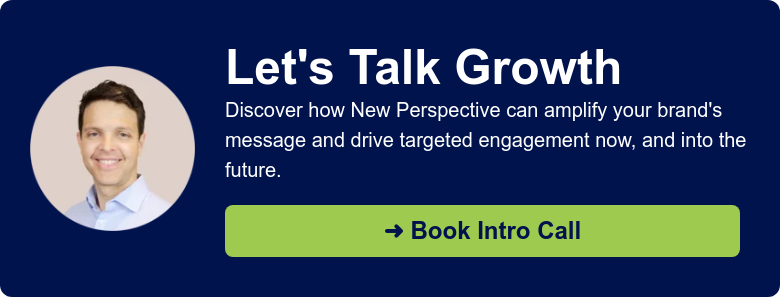10 Tips for Interviewing Subject Matter Experts for Great Content

Our clients rely on us to help them offer great content. Whether a web page, a whitepaper, a podcast, a guest post, a Q&A, a webinar, or a video clip, great content presents the client's expertise and point of view.
It highlights the value of their services and products to their audience. It sets them apart from their competition and identifies their niche — so their target audience can not only find them, but get the wisdom and potential solutions they need.
But if the content is not compelling or done well, it won't get read or seen. Then, so much for raising that expert's profile, establishing them as a credible source of truth, and ultimately, reaching the audience they want to reach.
Go to the source
The best way to create a powerful piece of content that conveys real knowledge, insight and vision is to go directly to the source: a subject matter expert (SME) who has a specific breadth of experience and knows their topic inside and out.
To truly get the benefit of their knowledge and perspective, we interview them, reporter style, and create the content based on that interview (or if it's longer content, a series of SME interviews).
But there are challenges, too. To get the best results, here’s our playbook. Some of these 10 strategies may surprise you, but that's the thing about expertise, isn't it?
1. Know the goal of the content.
Nothing we do here is created in a vacuum. Every piece of content is part of a well-thought-out marketing plan. Before we reach out to any SMEs, our team of customer service, project, marketing and content people has already brainstormed with the client on what the content needs to be, what it's going to cover, who it's for, and where it's going.
We know the target audience. We know what the content needs to accomplish for that audience. We also know how that content fits into the client's marketing objectives.
SMEs want to know you're not going to waste their time. Same goes double for the client. They might forgive you for one mixed-up process, but they won't forgive you if it happens again.
2. Treat this like a collaboration.
We are responsible for the final product, but we work closely with the client all the way through. The main actors are the SME and the writer, but there's a lot of other people supporting them, including our customer service team and whoever is the designated contact on the client side.
We don't leave the writer to do all the heavy lifting or diplomacy any more than the client leaves the SME in that position. Great communication, support, and shared accountability ensures the best outcome: a high-quality piece of content that represents the client and sparks interest, conversations, and leads.
3. Create a realistic timeline.
The process of creating useful content with a clear objective is a long one. Even after the goals and topic are set, there's more to do. Beyond the interview, there will be follow ups, drafting, adjusting, reviews, approvals, and phases for design and production.
Work up a schedule with the client that allows for realistic turnaround times. Our clients are hungry to get content out and get results, and so are we. But we build in the time everyone needs to produce the optimal result. Don't overpromise and underdeliver. Don't say you can rush and then be late.
4. Use a professional.
Assign a skilled writer to conduct not just the interview itself, but the preparation and the final result. SMEs are seasoned professionals who have gained a standing in their field. Do them the courtesy of bringing a similarly credentialed professional to interview them.
You need someone the SME trusts (and respects) enough to fully participate. Being able to start a conversation, steer back from tangents, hit the key points, get all the information needed, and be judicious, friendly, and considerate are skills that can take years to acquire. This isn't time to bring in the untested newbie.
5. Choose the right SME.
You need an SME who can speak to the topic, but you also need one that has the time and bandwidth (more on that in a moment). Often, your client will know who that is: the SME who is willing as well as able to do the interview and happy to share their wisdom.
But keep to the guardrails: If we're doing a whitepaper on corporate sustainability practices, we find an expert on corporate sustainability practices. If we're doing a blog on energy-efficient lighting, we want the lighting engineer.
Industrial expertise comes in countless forms. We save a lot of frustration on all sides by interviewing the right person. One caveat? Especially in fields like cleantech, sales and marketing people are fonts of knowledge. Don't discount a sales person who knows their stuff.
6. Research and prepare.
This isn’t just up to your writer: you need to provide them with the best channels to research the topic in advance. Don't rule out complicated information: if your client has data sheets, complex industry analyses, and even product information, get it to the writer.
If the SME has already written on the topic, that's a gold mine. If the information needs to be clarified before the interview questions can even be written, make sure someone on the client side can provide explanations.
Iron out all the details with the client so whatever aspects of the product or service have to be covered in the interview, they are. We can say from experience that AI can help with some general perspective, but it won't give you the exact information you need. Preparation for a great interview depends on putting your heads (not your bots) together.
7. Provide a set of questions in advance.
This is why research is so critical. We absolutely do not believe in ambushing an SME with unfamiliar questions if we can help it. The SME — and the client along with them — should receive an email with a set of well-crafted interview questions with ample time to review them. If they see any omissions or misassumptions or just errors, they should be given the chance to change them. Then the writer needs time to incorporate those changes before the interview.
Nothing should be ad libbed or improvised, even if the tone of the interview is fun and informal. We recommend a set of 9-12 questions: anymore and it can get overwhelming. Make sure the SME is also asked if there's anything we left out of the interview that they'd like to add. We've gotten some great information that way.
8. Get the interview done in an hour.
We find that an hour is the sweet spot for SME interviews. It gives them enough time to expansively discuss as they need to, but without requiring them to give up too much of their day. Less than an hour and you may miss some key points.
If your interviewer is good at their job, they'll know when to move things along, have the discipline to refocus the SME, and have a sense of how to graciously end. You can always follow up for clarifications (and you should, via a designated contact person on the client side. Bonus points if the SME has such a good time they offer to come back for more questions. But think twice before accepting that offer.
9. Respect the SME’s boundaries.
Again, we can't stress this enough: exercise sensitivity, respect and good etiquette. SMEs tend to be very busy. Depending on the nature of the business, they may be traveling constantly, overseeing critical projects and teams, triaging issues, hiring personnel, and feeling internal and external pressures. Our agency clients are in highly competitive, rapidly changing industries, and their experts have little downtime.
Make it easy for an SME: keep the requirements simple and clear: you need them for 3 phases, and that's it. First, so long as they're willing, have them review the questions (and make changes). Second, they need to come to the interview and answer the questions. Third, if they're willing, ask them for any followup clarifications through a client rep.
10. Have a Plan B.
There are times when an SME will commit to an interview and then have to cancel, or they will just not make themselves available despite the plans.
Or the topic you all agreed on for the next piece of content is usurped by a new, pressing need. The fields of cleantech and alternative energy are evolving so rapidly that new developments happen all the time.
Full disclosure here: We've had the experience of being all set to conduct an in-depth interview on one subject when the client received funding that greenlighted an exciting new technology.
The best strategy? Regroup, revamp, and reposition. We're here to support our clients. We never lose sight of that, and it always works out for the best.
A team effort
When done well, bringing in an SME for an interview is hassle-free and an enjoyable process that yields high-quality, engaging content. It sparks interest, conversations, leads, and possibly business — and the client had a good enough experience to want to do it again and again.
That's the ideal: not just a one-off, but a series of SME-based content that raises the profile of the company — so they're seen as a source of truth and solutions in their market. What makes that happen is a great expert, a capable interviewer and content creator, and a crack supporting team.
If you’re looking to up your game as far as content, another factor to consider is a great partner. We’d love to talk to you about your content needs — and get your company the visibility it deserves. Reach out.




